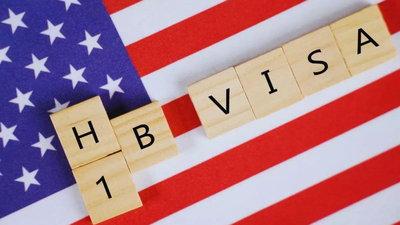H-1B professionals often assume that strong performance, loyalty will protect them from layoffs, but immigration experts are warning that this belief is increasingly dangerous. Amid Trump’s latest H1-B visa U-turn, tech and defence is restructuring itself in the United States. Foreign workers often face the harshest consequences because the immigration clock begins ticking the moment a job ends.According to Indian-origin Houston-based immigration lawyer Rahul Reddy, many H-1B workers are often stunned when layoffs hit. He says the biggest mistake for visa holders is assuming “it won’t happen to me”. Once employment stops, the worker enters a strict 60-day grace period. It may sound generous, but Reddy warns that those two months disappear fast when a person is trying to absorb the shock, find a new employer willing to file an H-1B transfer and manage paperwork at the same time.Reddy says many fall into the same traps. They believe their job is secure because the company is doing well. They assume a new role will be easy to find in a tight job market. Some wait too long before acting, hoping the employer will reconsider a layoff decision. “They rarely do,” he says.
So what’s Plan B that every H-1B-holding employee should have?
The message from immigration lawyers is that planning a backup early is important, not pessimistic. It is simple survival for anyone whose legal status depends entirely on their job.Reddy outlines several options that can act as a buffer if a layoff occurs.
- A timely B-2 visitor status filing can give a worker extra months in US and can offer space to regroup even though it does not allow employment.
- Some choose to move to an F-1 student status to upskill and remain in status legally, given the academic start date fits within the grace period.
- One of the most underrated routes is the H-4 dependent status for those whose spouse holds an H-1B. It is often the safest and least disruptive option, especially if the worker qualifies for H-4 employment authorisation.
- For others, returning to their home country may seem straightforward, but even this carries new risks. Travelling out of the United States and re-entering on a fresh H-1B approval may trigger the new $100,000 H-1B fee rule for many workers that Trump enforced in September.
Who is Rahul Reddy?
Reddy is the founding partner of Reddy Neumann Brown PC and has practised employment-based immigration for more than 28 years. He founded the firm in 1997 and has long been an active member of the immigrant community. He offers daily free conference calls and weekly Q&A sessions. He has been with the American Immigration Lawyers Association since 1995.



